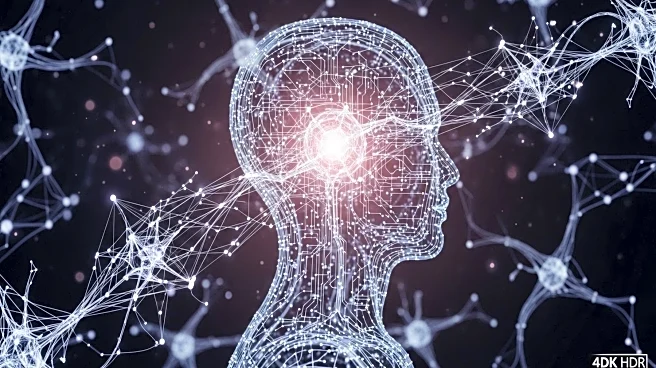What is the story about?
What's Happening?
Artificial intelligence is intensifying the cognitive damage already inflicted by the internet, according to recent studies. The internet's emphasis on speed and distraction has made humans less capable of deep, complex thinking. AI tools like ChatGPT further exacerbate this issue by promoting cognitive offloading, where users rely on machines for tasks that require critical thinking. Studies have shown a negative correlation between frequent AI tool usage and critical thinking abilities, particularly among younger individuals. This trend raises concerns about the long-term educational implications of AI dependency.
Why It's Important?
The widespread use of AI tools poses a significant threat to human cognition and critical thinking skills. As more people, especially students, rely on AI for academic and professional tasks, there is a risk of diminishing cognitive engagement and independent problem-solving abilities. This dependency could lead to a generation less equipped to tackle complex challenges, impacting innovation and decision-making across industries. The findings highlight the need for balanced technology use and the importance of nurturing critical thinking skills in educational settings.
Beyond the Headlines
The impact of AI on cognition reflects broader societal trends of increasing machine dependence. It raises ethical questions about the role of technology in shaping human thought processes and the potential consequences of over-reliance on AI. The findings suggest a need for reevaluating educational approaches to ensure that technology enhances rather than hinders cognitive development. As AI continues to evolve, understanding its effects on human cognition will be crucial for developing responsible and sustainable tech policies.
















